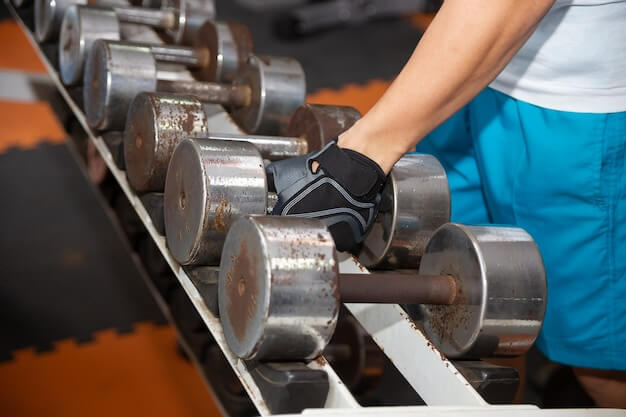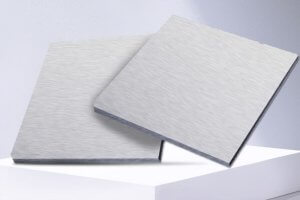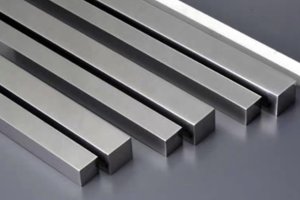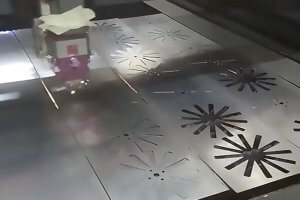Introduction to CNC Machining and Titanium Alloys
CNC (Computer Numerical Control) Machining is a high-precision manufacturing process where pre-programmed computer software directs the movement of factory tools and machinery. This technology enables highly complex, three-dimensional cutting tasks with an unparalleled level precision. Among many materials machined in this way, titanium alloys are particularly relevant given their exceptional strength-to-weight ratio, corrosion resistance, and ability to endure extreme temperatures. These properties make them ideally suited for demanding applications within sectors like aerospace, medical devices and automotive. Understanding the intricacies of machining these durable compounds can help optimize processes, increasing efficiency and part accuracy.
- CNC Machining: Utilizes computer-controlled systems to operate machinery or tools with fine detail and accuracy, allowing for the creation of more sophisticated products.
- Titanium Alloys: Highly durable metals known for their impressive strength-to-weight ratio, temperature resilience, and corrosion resistance, commonly used in industries such as aerospace and medicine.
Understanding Prototype CNC Machining
The term ‘prototype CNC machining’ refers to a specialized area of technology where computer numerical control machinery is used to create prototype parts from materials such as Titanium alloys. These machines operate with precision, guided by programmed commands without manual intervention.
Emerging in the mid-20th century, CNC technologies evolved from traditional tools that required direct human operation to autonomous units driven by digital instructions. This evolution was propelled largely by advancements in computing power and software algorithms, which has culminated into today’s sophisticated machinery capable of producing intricate design details with superior accuracy.
In contemporary times, industries globally have reaped vast benefits from these technological marvels. For example,
- Aerospace industry: The use of durable and lightweight titanium alloys produced through prototype CNC machining play a pivotal role in creating high-performance aircraft components.
- Medical sector: Crucial biomedical devices such as artificial joints are manufactured using this technology, ensuring utmost precision and sanitation.
- Automotive sector: From gearboxes to engine parts, an array of vehicle components undergo CNC machining, enhancing their operational efficiency and performance.
This widespread application in core sectors underlines its importance in the current industrial landscape.
Deep Diving into Titanium Alloys
Titanium alloys are defined as a combination of titanium and other chemical elements such as iron, aluminum, vanadium among others. These properties render it extremely useful in manufacturing due to its high strength-to-weight ratio, outstanding corrosion resistance, and superior biocompatibility. For instance:
- High Strength-To-Weight Ratio: This property provides an optimal trade-off between durability with lightweight qualities making titanium alloy parts lighter than similar steel ones with the same strength.
- Corrosion Resistance: Another desirable feature is that these alloys resist oxidation and degradation when subjected to varied environmental conditions, including seawater – thus ensuring longevity for components made from this material.
- Biocompatibility: Notably, Titanium alloys do not react negatively with the human body or cause allergic responses making them suitable for creating medical prosthetics. Their stability also contributes to their use in aerospace applications where failure could result in disastrous consequences.
These fundamental characteristics underpin the rationale behind the widespread usage of this metal alloy in industries like aerospace, automotive, marine, and medical fields. Through CNC Machining prototype phase, intricacies can be finetuned achieving superior accuracy.
The advantages of using titanium in CNC manufacturing include exceptional strength-to-weight ratios, corrosion resistance, good heat conductivity, and biocompatibility, making it suitable for various applications. However, titanium also has drawbacks such as poor electrical conductivity and difficulty in machining. In aerospace CNC machining, titanium’s strength, lightness, and resistance to high temperatures and corrosion make it an ideal choice for functional aircraft components and external parts. When considering CNC machining with titanium alloys, it is important to weigh these factors to achieve superior accuracy and performance.
Factors Influencing the Accuracy of Prototype CNC Machining
In precision-based prototype CNC machining of titanium alloys, various factors contribute directly to the overall accuracy of the final product. Among these variables is the geometry and sharpness of the cutting tool used, which can drastically alter surface finish and tolerance ranges in the process. Parameters such as cutting speeds, feed rates, depth of cut, or coolant application influence workpiece characteristics like its dimensional accuracy, roundness, straightness, surface roughness, and corner radius.
To achieve superior accuracy in this machining process:
- A skilled operator should monitor and adjust these parameters based on observed outputs continuously.
- The use of high-quality tools reduces wear over time and offers consistent performance.
- Evaluating your fixture’s stability can also significantly enhance precision, as any vibrations during operations could potentially disrupt the machining process and lower the outcome’s quality.
- Lastly, choosing correct grades of Titanium alloy according to design requirements because Each grade features different levels of machinability leading to a varied impact on the finished part’s accuracy.
Comparison Between CNC Machined-Titanium Components Versus Traditional Methods
The invention of Computer Numerical Control (CNC) technology has brought about significant changes in manufacturing outcomes, particularly with respect to titanium alloys. Traditional techniques required enormous amounts of time and resources for proper formation of components and could not guarantee high precision or consistency. However, with the advent of CNC machining, manufacturers can achieve exceptional precision while also reducing their production times substantially.
- CNC machining ensures repeatability and reduces human error which contributes to superior accuracy.
- This scalable innovation allows complex geometries to be achieved on a faster scale compared to traditional fabrication methods.
- In terms of financial efficiency too, the costs involved in setting up multiple tools are minimized by this single equipment that performs varied functions, thus creating economic stability within the industry.
An example case showing advancement over time is the aerospace industry where multi-axis simultaneous machinings are used to create intricate designs which were earlier either impossible or too time-consuming. This obviates manual intervention and brings about increased throughput. Indeed, these enhancements underscore the central role CNC Machining now plays in modern industrial design and production workflows.
Future Perspective: Potential Innovative Uses for Prototype CNC Machined Titanium Alloy Products
In the future perspective, prototype CNC machining of titanium alloys is projected to revolutionize various industries due to its unique properties and advantages. Technological advancements are expected to unlock innovative applications in fields such as aerospace, automotive, medical, and energy sectors.
- Aerospace: Novel approaches may leverage these technologies to develop lighter, more robust parts that will enhance fuel efficiency and safety.
- Automotive: We can expect break-throughs in the manufacturing of high-performance components like piston rods, values, and turbine blades among other structural and engine parts.
- Medical: The adaptability of titanium-alloy-based products holds potential in advanced prosthetics, surgical tools, and biomedical implants;
- Energy sectors: Future developments in leveraging the extreme temperature resistance and corrosion resistance properties of Titanium to produce durable parts.
The upcoming development prospects leveraged by these technologies hint towards an unprecedented horizon of manufacturing opportunities.
Other Articles You Might Enjoy
- High-Precision CNC Machining for Custom Optical Lenses
Introduction to CNC Machining and its Significance in Custom Optical Lenses CNC - Computer Numerical Control machining, is a highly precise process employed for the production of complex parts with…
- Ceramic CNC Machining: Advantages and Limitations for Industrial Applications?
Ceramic CNC Machining: Advantages and Limitations for Industrial Applications As the demand for precision in industrial applications continues to rise, manufacturers have turned to advanced solutions like Computer Numerical Control…
- Exploring Bead Blasting in CNC Machining(weld line Wanda)
Bead blasting is an essential component of computer numerical control (CNC) machining. It involves the use of tiny beads under high pressure to smooth out surfaces, deburr parts, remove surface…






